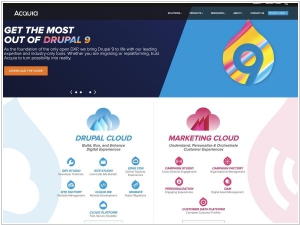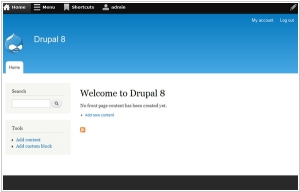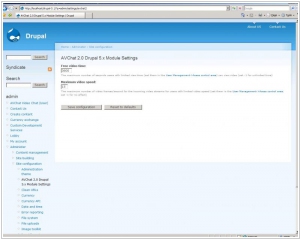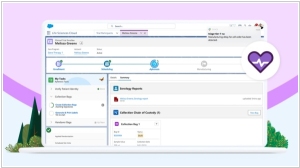Drupal is #2 in Top 10 Website CMS systems
Drupal is a free and open-source content management system (CMS) and content management framework (CMF) written in PHP and distributed under the GNU General Public License. Unlike alternatives it's often used for knowledge management and business collaboration. Because of this plug-in extensibility and modular design, Drupal is sometimes described as a content management framework.
Positions in ratings
#2 in Top 10 Website CMS systems
Alternatives
The best alternatives to Drupal are: WordPress, Joomla, SharePoint, Liferay, Sitecore
Latest news about Drupal
2020. Acquia launches Digital Experience Platform

Digital experience company Acquia has announced the launch of its new Acquia Open Digital Experience Platform (DXP). This powerful platform combines Acquia Marketing Cloud and Acquia Drupal Cloud, providing organizations with a unified solution to leverage data and content effectively, enabling the rapid creation of innovative digital experiences. With the Acquia Open DXP, marketers and developers now have access to a single, user-friendly platform for building, personalizing, and orchestrating multi-experience customer journeys across various customer touchpoints, including touchscreens, chat, voice, and more. The platform also offers valuable tools such as Developer Studio, an integrated development environment (IDE), and Site Factory, a robust solution for managing and scaling Drupal 9 sites and applications, making it easier for developers to build Drupal sites. Additionally, the inclusion of CMS Migrate simplifies the transition from older versions of Drupal and legacy CMS to the latest Drupal 9 release.
2015. Drupal 8 is released

Drupal has finally released the highly anticipated Drupal 8.0 platform, which introduces a range of exciting features and improvements. These include in-context editing and previews, allowing users to see a real-time representation of their content as they edit it. The platform also provides comprehensive content modeling capabilities, incorporating entities, fields, and views right from the start. Users can easily customize content pages, forms, and administrative pages using the intuitive administrative interface. Additionally, Drupal 8.0 offers built-in support for multilingual content and localization, ensuring that websites can be easily translated and adapted to different languages and regions. The platform includes configuration management, enabling seamless deployment of changes between different environments. It adopts a mobile-first approach, ensuring that websites are responsive and optimized for mobile devices, while also delivering HTML5 output. Drupal 8.0 supports native web services, allowing easy integration with other applications and systems through REST. The platform prioritizes accessibility and compliance with WAI-ARIA standards, ensuring an enhanced experience for users with disabilities. It follows modern PHP standards and practices, incorporating popular libraries like Composer, Symfony2, Guzzle, and Twig. Drupal 8.0 focuses on front-end performance, offering improved caching and seamless integration with CDNs and reverse proxies. Furthermore, the platform is fully compatible with PHP7 and supports both PostgreSQL and SQLite databases. Overall, Drupal 8.0 represents a significant advancement in functionality, performance, and flexibility for web developers and content creators.


